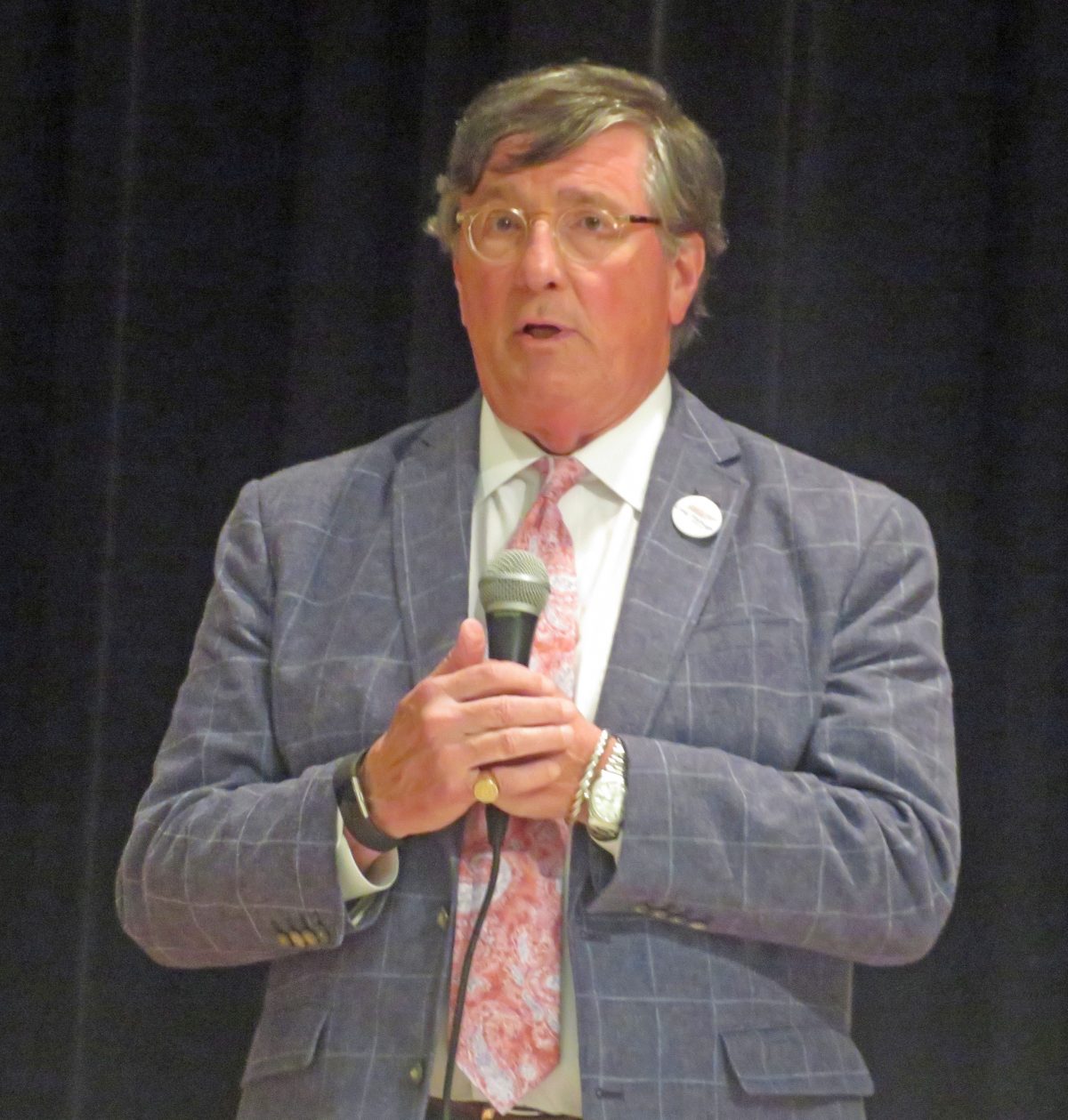Craig Fitzhugh, who these days serves as mayor of nearby Ripley, Tennessee, is better known for his many years of service in the General Assembly, where he was leader of the House Democratic caucus before retiring from the legislature in 2018 to make a run for Governor.
One of Fitzhugh’s big issues in those years was medical care, and it remains a major concern now, something he made clear in addressing members of the Rotary Club of Memphis via ZOOM on Tuesday.
The state does offer TennCare for its disabled and indigent citizens, but the scope of that program’s coverage is limited to something like a million people, he said. “And once you have any income at all, you’re not really eligible for Tenncare.”
Tennessee, he pointed out, is one of only 13 states that, at this point, have not accepted the federal government’s offer to expand Medicaid funding, to the tune of something like a billion dollars a year under the Affordable Care Act, which began under the Obama administration. And, said Fitzhugh, President Biden has “sweetened the pot” by offering Tennessee another $1 billion as a bonus for accepting Medicaid expansion now. Acceptance is entirely dependent on a state’s decision, as a result of a U.S. Supreme Court decision in 2012, and Fitzhugh called Tennessee’s continuing failure to do so “probably the worst mistake” in the state’s history.
“The truth of the matter is, there is no real reason why Tennessee has not expanded Medicaid. no real reason,” Fitzhugh said, the reasons being, as he explained, matters of politics and ideology, with the popular name for the program, “Obamacare,” probably looming larger than any other factor to the Republicans in control of state government. “And the only reason left, if there is one, is people calling it ‘Obamacare.’ ”
The program, as Fitzhugh noted, would provide significant medical services for all Tennesseeans whose income amounts to 138 percent of the official poverty line. “These are working people that either can’t afford medical insurance or their employer can’t afford it for them. So the thing that people didn’t realize about Medicaid expansion is, it helps working folks. And if you put that hat on, then you will know what kind of growth it would give, not just from a fundamental standpoint, but from an economic standpoint.”
Former Governor Bill Haslam devised a state program in 2013 that he called “Insure Tennessee” that was designed to work with the Affordable Care Act, but state Senator Brian Kelsey (R-Germantown) had meanwhile contrived to pass legislation making acceptance of Medicaid expansion contingent upon joint legislative approval. And, said Firzhugh, there seemed to be “some informal agreement as to who would come first, between the House and the Senate,” both Republican-dominated, and neither would take the first step.
Democrats were too much of a minority to move things all by themselves, “though we did our best,” said Fitzhugh.
In the beginnings of the Affordable Care Act, the federal government footed 100 percent of the costs of an accepting state’s expansion. It now pays for 90 percent of it, as envisioned in the plan’s original timetable. As Firzhugh pointed out, the state Hospital Association stood ready to guarantee the odd 10 percent back then, and he foresaw little difficulty in arranging a coalition to defray those costs now.
“And as I said earlier, this expansion is not just for the disabled or unemployed persons. It is for those people who just cannot afford it. And think of the difference that it would make if somebody could have regular medical checkups, find problems early, especially chronic situations, like heart disease, diabetes, and all that.” Even COVID, he added.
“And I still say if that thing got to the floor, then public opinion would come about, the stations would come about, the hospitals would come about,” and Tennessee could yet enjoy the medical and economic benefits it has been forfeiting, Fitzhugh said. And he expressed hope that his friend Randy McNally, the current lieutenant governor of Tennessee, was moving in that direction.
“There is no moral, medical, or monetary reason why Tennessee should not expand Medicare,” Fitzhugh said, and the failure so far to do so remains the state’s greatest mistake.
